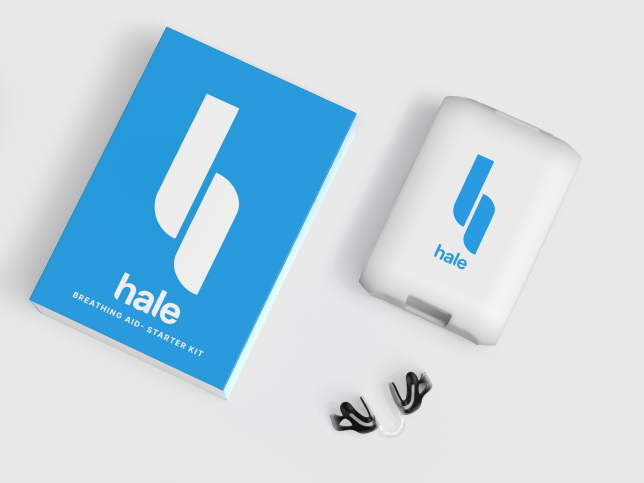
In today’s fast-paced world, maintaining optimal respiratory health is crucial. The quality of our breathing directly impacts our overall well-being, and with increasing exposure to pollutants, allergens, and seasonal viruses, many people are looking for effective methods to keep their respiratory systems healthy. Nasal dilators—small, non-invasive devices designed to open up the nasal passages—are gaining attention as a useful tool for improving airflow and reducing the risk of respiratory illnesses.
Understanding Respiratory Illness and Nasal Obstruction
Respiratory illnesses, from the common cold to more severe conditions like chronic obstructive pulmonary disease (COPD) or sinusitis, often have one common denominator: obstructed or inadequate airflow through the nasal passages. The nose is the body’s first line of defense against airborne pathogens and irritants. It filters, warms, and humidifies the air before it reaches the lungs. When nasal passages are blocked, it forces us to breathe through our mouths, bypassing the natural filtration system and increasing the risk of pathogens entering the respiratory system.
What Are Nasal Dilators?
Nasal dilators are devices that help to gently open up the nasal passages, making it easier to breathe through the nose. They come in two primary forms:
External nasal strips that adhere to the outside of the nose and pull the nostrils open.
Internal nasal dilators that are placed inside the nostrils to gently expand the nasal walls.
Nasal dilators have been used for years to improve airflow for those suffering from nasal congestion due to allergies, a deviated septum, or other obstructions. But beyond just improving comfort, nasal dilators have broader health benefits, particularly in the prevention of respiratory illnesses.
How Nasal Dilators Aid in Respiratory Illness Prevention
Enhanced Filtration and Air Quality Control
With nasal passages fully open, the nasal cavity can effectively filter out airborne contaminants, allergens, and pathogens. Nasal dilators help ensure that air flows smoothly through the nasal passages, allowing the nose to capture more particles before they reach the lungs. This is especially important in high-pollution areas, during allergy season, or when seasonal respiratory viruses are prevalent.
Reduced Risk of Mouth Breathing
Mouth breathing, which often occurs when nasal passages are blocked, bypasses the natural filtration system and dries out the mouth and throat, creating an environment where viruses and bacteria can thrive. Using a nasal dilator reduces the likelihood of mouth breathing, allowing the nasal passages to do their job as the body’s built-in air filter.
Better Oxygenation and Lung Health
Proper nasal breathing supports better oxygenation of the blood and ensures that the air reaching the lungs is appropriately conditioned—moistened and warmed. This can have a protective effect on lung tissue by reducing irritation caused by dry or cold air, which can exacerbate symptoms of respiratory illnesses.
Support for Immune Function
The mucous membranes in the nasal passages play a vital role in immune defense, trapping and neutralizing pathogens before they can cause infection. Open nasal passages facilitated by a nasal dilator enhance this defense mechanism, reducing the frequency and severity of respiratory infections.
Improved Sleep and Recovery
Quality sleep is fundamental to a strong immune system. Nasal congestion often leads to disrupted sleep, causing fatigue and reducing the body’s ability to ward off infections. Nasal dilators can improve airflow during sleep, leading to better rest, enhanced immune function, and faster recovery from any respiratory symptoms.
Who Can Benefit from Nasal Dilators?
Nasal dilators can be especially beneficial for:
People with Allergies: By enhancing airflow and filtering out allergens, nasal dilators can help minimize allergy symptoms.
Those Prone to Sinus Infections: By promoting proper drainage and airflow, nasal dilators may help reduce sinus congestion and the risk of infection.
Athletes: Optimal nasal breathing is essential for endurance, focus, and performance, making nasal dilators a popular choice among athletes.
Individuals in High-Pollution Areas: For those living in cities with high pollution levels, nasal dilators aid in filtering out airborne toxins and irritants.
Sleep Apnea and Snoring Patients: Nasal dilators can improve breathing quality during sleep, reducing the incidence of snoring and mild apnea.
Conclusion
Preventing respiratory illness requires a proactive approach, and optimizing nasal breathing is a simple but powerful step in the right direction. Nasal dilators are an easy-to-use, non-invasive option to support your respiratory health by improving airflow, enhancing filtration, and reducing the need for mouth breathing. For anyone looking to strengthen their respiratory defenses naturally, incorporating a nasal dilator into their daily routine may prove to be a valuable asset.
